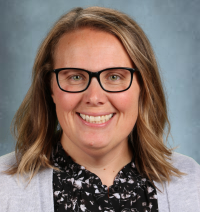Our secretary, Mary Fryman, will coordinate the first visit. Then, a coach on our team will come out to begin the coaching process. Coaches are selected based on the needs identified by the school team in the referral paperwork.
- Intervention Specialists Allison Officer and Jackie Vollmer specialize in classroom referrals, academic differentiation, and instructional supports.
 |
| Allison Officer |
 |
| Jackie Vollmer |
- Speech and Language Pathologist Carol Dittoe specializes in functional communication, augmentative and alternative communication (AAC), and social skills.
 |
| Carol Dittoe |
- Occupational Therapist Lynn DeMange specializes in sensory processing, self-management, and regulation supports.
 |
| Lynn DeMange |
All of our coaches are Certified Autism Specialists and specialize in behavior interventions.
The role of our coaches is to:
- offer encouragement and support
- research and model evidence-based strategies
- collaborate and brainstorm new interventions to trial with your team
- analyze behavior and data
- provide individualized resources, tools, or assessments
- help your team prioritize interventions
Our role is not to:
- evaluate or judge your team
- provide direct service to students
- consult without input or collaboration with your team
- make recommendations regarding student placement/LRE or hiring of additional staff
Each visit consists of an observation and a meeting.
Observation
Observations are typically in-person and last for about 1 hour.
During the observation, we will try to be discreet to minimize distracting students. During the observation, we want to see as close to a typical day as possible. It is important for us to see existing supports and routines, student behaviors, and anything that may assist us in knowing where our support is needed.
We tend not to have a lot of discussion with staff during this time because we want to minimize distractions, be respectful of not talking about students in front of them, and want to see an authentic snapshot of the day.
At times, we may interact with students or even try a couple interventions "in the moment". This helps us get a better idea of what may or may not work which informs our future recommendations. Plus we all worked in classrooms prior to coaching so we love the opportunity to be hands-on with students again! During this time, we encourage classroom staff to observe us. We won't always be there to intervene with students so when we are modeling it can be important for classroom staff to take note of how we work with the student so that they can intervene in the same way in the future.
Meeting
Following our observation, we will meet with the team. This meeting may be immediately following the observation, later in the day, or on a different day depending on your team's availability. The meeting can be virtual or in-person.
We like to have as many team members as possible attend the meeting since we know that collaboration is essential to success! If it is an individual student referral, we let the school team decide if they would like to invite parents to be in attendance.
Typically, the meeting will follow the sequence outlined below:
- The ACT coach will send an email with a detailed summary to all members of the team including those who may not have been able to make it to the meeting.
2. Explanation of the ACT process:
- The role of the ACT team is to provide job-embedded professional development specifically tailored to the needs of the referral classroom or student to build the educational team’s capacity in meeting the identified needs. With a classroom referral, we provide global classroom supports that could benefit all or a group of students. We do not give individual student recommendations because we do not have parent permission. With an individual student referral, we are able to give student-specific recommendations. Our referral is good for a calendar year and as we provide suggestions we will check in periodically to see how they are going and see if we need to meet and/or observe again to tweak interventions or brainstorm new ideas.
3. Review what is going well and strengths, interests and reinforcement:
- We like to build on strengths, help your team identify some positives in a typically stressful period in the classroom, and learn more about what students (or classroom staff) find motivating.
4. Review what is not going well/challenges:
- When an ACT referral is initiated, it is typically because your team needs some support. Although some venting can occur, we try to keep this time goal-driven and solution-focused. It will help us in determining the desired outcomes of our coaching.
5. Discuss desired outcomes of the coaching process:
- These goals are informal but will guide the coaching process throughout the year-long referral. Consider what staff wants to learn more about and outcomes you want for the student(s) to help everyone be more successful.
6. Determine initial action steps and provide any recommended tools:
- We try to keep the meeting focused so that we can get to the good stuff... which is what to do next! We will work with your team to brainstorm interventions. We sometimes provide tools or additional resources for you to trial.
7. Schedule times for future observations and/or follow-up meeting:
- Once we provide the recommendations, we want to come back and see them in action! This allows us to model or tweak things as needed and determine the next steps. Typically, we schedule this follow-up visit 4-6 weeks after our initial meeting because research shows this is how long it takes to determine intervention effectiveness. If you trial the intervention and things get worse, PLEASE contact your ACT coach! We don't want you to abandon interventions or struggle between visits. We can provide some triage coaching which keeps the coaching momentum moving forward.
If you want to prepare ahead of time, gathering some of the following information to share at the meeting can be helpful:
- Copy of classroom schedule.
- Examples of classroom strengths, interests, and concerns.
- List of strategies that have already been tried, successfully or unsuccessfully.
- Data illustrating behavioral concerns or the impact of trialed intervention
- Ideas about specific needs/desires for outcomes of the coaching process.
- Contact information and schedules for all educational team members.
- Calendar/Planner for scheduling follow-up meetings.
Hang in there! Help is on the way! We will see you soon.







No comments:
Post a Comment